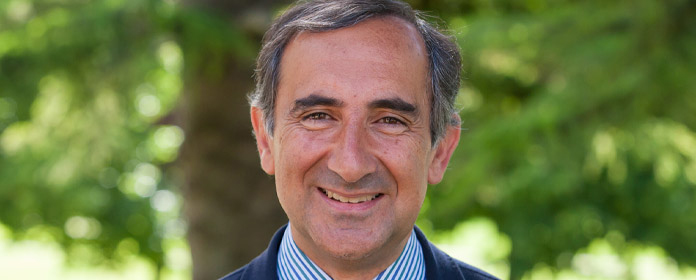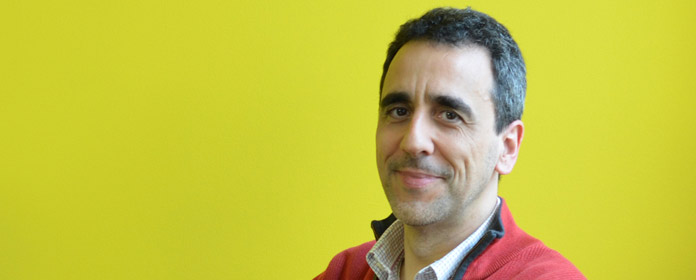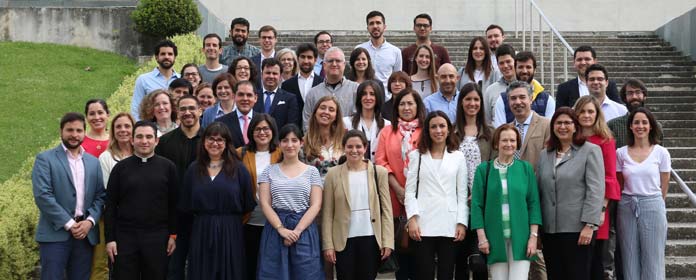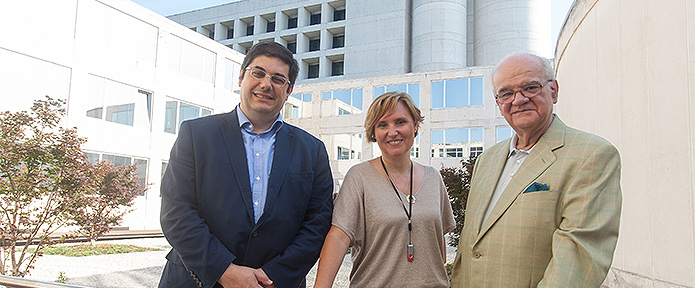From 'postdoc' to Antwerp: the life of a researcher after the thesis
Dámaso Izquierdo did his doctorate at project 'Public discourse' at Institute for Culture and Society and has recently joined a Belgian university.
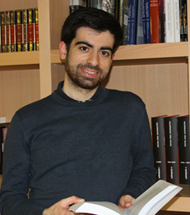
PHOTO: Isabel Solana
Dámaso Izquierdo did not arrive at linguistics by chance. He admits that in high school diploma was not very aware of what this discipline consisted of, but his vocation for languages - he speaks English, French and German, in addition to Spanish- and language in general led him to degree program of Philology Hispánica at the University of Navarra. His path was clear to him: "I saw that thesis was the next step. It didn't take me long to make the decision".
That was the beginning of a four-year adventure at the project 'Public discourse' of the Institute for Culture and Society (ICS), which recently earned him the award Extraordinary of doctorate 2016-2017 at Arts and Humanities of the School of Philosophy and Letters. In it he analyzed the scope and limits of evidentiality, a linguistic category that indicates in what way the speaker has had knowledge of the information he conveys.
When he explains what he studies about it, he appeals to discursive issues such as the implications in the field of Public discourse or the media. "When a journalist covers a case and talks about aspects that are yet to be confirmed, he handles many sources and assigns them different information. But he cannot continually repeat 'this source says...', so he makes variations that evoke that what he mentions next is framed in that sphere of speech", he specifies.
Stays in Belgium, Germany and the United KingdomHe confesses that when he started doctorate he had "no idea" what the life of researcher was all about. "I think virtually no one knows at the beginning; you only realize it when you're really into it," he says. "At first it's very rewarding, because you get to read a lot of bibliography. But soon it's time to write, to organize a long and changing work... It has nothing to do with what you've done so far," he says. He says he has gone through "ups and downs", but he does not regret "at all" having made it to the end.
To be exact, it is not an end; it is only the culmination of the stage with which the real life of every researcher begins. The defense was followed by a year of research at the ICS -and the first publications as a doctor- and another year as a professor-tutor of the associated center of the UNED in Pamplona.
And in April 2018 he has made the leap to the international 'postdoc' at the department of Linguistics of the University of Antwerp (Belgium) together with Patrick Dendale, who will supervise his work. This is her third stay there, although this time for longer than in previous stays, and joins others at the University of Heidelberg (Germany) and Lancaster (UK).
His priority is to produce several articles from the doctoral thesis to be submitted to prestigious international journals. "I want to earn skill producing in English, as I am aware that during my degree program I will have to publish mainly in this language language", he adds. In them he wants to continue to deepen the field of his thesis , on which he has just edited a new book together with Professor Bert Cornillie, Gramática, semántica y pragmática de la evidencialidad (Grammar, semantics and pragmatics of evidentiality ) (EUNSA).
In addition to this, he plans to continue collaborating with the ICS project 'The DEMOS in the imaginary of the new policy', which is funded by the Ministry of Economics and Competitiveness. He is looking forward to continuing to be linked to high school: "What I value most about it is the multidisciplinarity. I take with me this way of working as a team, which is not very common in other centers", he points out.
He is aware that the period he is starting has other difficulties that he had not encountered until now: seeking financing, asking for projects, giving up stability for a while... However, he hopes to enjoy the positive side of this stage: "A stay is an opportunity to learn, to get out of the routine and to soak up what is happening elsewhere".


